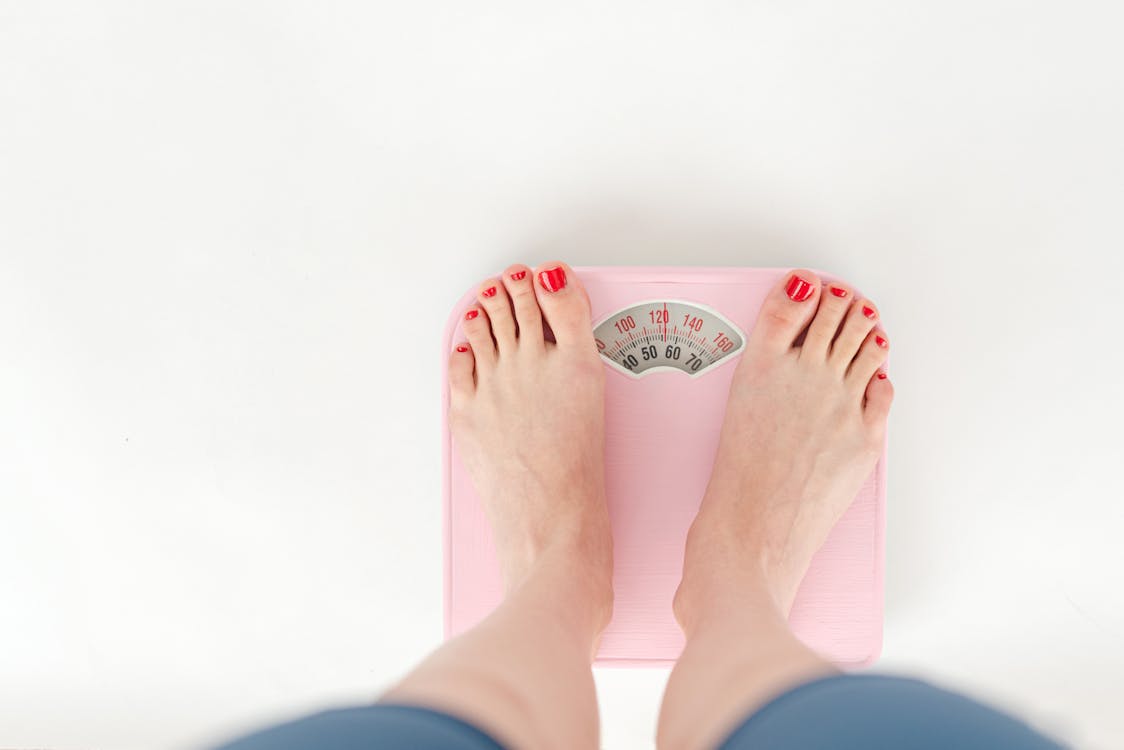- PhentermineLearn more about phentermine and how to get the most from your weight loss journey.
- ResourcesAdditional information and tools to help you make the most of your effort.
- AlternativesLearn more about the most popular weight loss medications and science-backed supplements
How Long Does It Take To Lose Weight?
Published on December 11, 2024

Diving into a diet adventure to mix it up a bit? I’m guessing you’re eager to solve this mystery: How fast can you lose that weight?
Weight loss is a process that requires many effort, but also giving up some bad habits. In addition to customized and varied diets, a very important factor is certainly a physical activity that accelerates your metabolism, literally melts the accumulated fat in your body, and increases muscle mass. Most people can attest to the fact that weight gain happens much faster than weight loss. Weight gain leads to obesity, which results in various adverse effects on your body.
It is possible to lose some weight in a very short period of time, but you have to know that such a diet plan will definitely have some flaws. That’s why you should rely on slower, healthier, and steadier weight loss programs. Weight loss in this way is less likely to produce serious side effects.
A healthy weight loss, without rigorous diets and extreme regimes, will provide long-lasting results. However, you may need to arm yourself with patience, but also be consistent in your diet plan. Except for this, there are many factors affecting the ease and pace at which you lose weight. Let’s take a look at the most important ones.

How Long Does It Take To Lose Weight? Factors That Affect Your Journey
How long does it take to lose weight? This depends on your metabolism, health condition, diet, exercise, and some other factors.
First of all, this depends on your gender. Actually, the fat-to-muscle ratio dictates your weight loss pace. Naturally, women have more fat than muscles when compared to men. This affects the calorie-burning rate at rest. Women tend to burn fewer calories at a state of rest than men (1). Thus, when asking how much weight you can lose when improving your body composition, don’t forget to take this into account.
Secondly, your age significantly affects your weight loss process. This is again related to the above-mentioned fat-to-muscle ratio. As we age, our muscle percentage decreases, while fatty accumulations increase. This also makes losing weight more difficult than during one’s youth. Studies (2) have shown that the RMR (which stands for the resting metabolic rate) significantly decreases as we age. Namely, the RMR of a 70-year-old is 25% lower than that of a young adult.
The Effects Of Your Starting Body Fat And Weight
In addition, your weight loss starting point significantly determines your weight loss journey. What does this mean? This implies that your starting body weight is directly proportional to the amount and speed of your weight loss. This is particularly visible during the first few weeks.
Simply put, if you are heavier, you will lose more weight in a shorter period of time than a person of your age and gender who is lighter than you.
However, this refers only to the pounds, not to the percentage of the body weight. The percentage of the lost body weight remains equal or very similar under the same or almost the same circumstances and conditions.

Another important factor affecting your weight loss course is the calorie deficit. It refers to the number of calories you are removing from your daily caloric intake.
However, many people make a big mistake: they make a too big and abrupt calorie deficit that shocks their bodies. Moreover, they soon begin to feel the negative effects of the nutrient deficit. Their metabolism also slows down. The worst thing is: such an approach leads to a fast loss of muscle mass, not fat.
Sleep is another very important factor that can accelerate your weight loss. How? Chronic lack of sleep increases your urge to consume high-calorie food (3).
There are also other factors affecting one’s weight loss process. Those include your genetic heritage, overall health condition, previous dieting habits, etc. The body loses weight faster in some people. Others, however, find it hard to lose weight effectively.
When it comes to your health status, it is important to pay attention to several critical points. If you have a thyroid gland disorder or hormonal disbalance, you might be losing weight more slowly than other people of the same sex, age, and general conditions (4).
In addition, taking certain drugs can slow down this process. For example, antidepressants make losing weight more difficult (5). Thus, when aiming for weight loss, be sure to take your medication into consideration.
What should a normal weight loss look like?

If you want to lose weight, there are two basic parameters that you may need to follow. Those refer to your energy intake and energy consumption. When it comes to energy intake, you will have to make a diet correction, i.e. modify your daily menus.
When it comes to energy consumption, i.e. calories, you will have to intensify your exercising routine.
In essence, losing weight is nothing more than simple math.
If you want to reduce your weight, you have to spend more energy than your intake is. These are the basics. Of course, there are still some additional parameters. Those include sources of energy, which muscle groups are active, your metabolism, etc.
A normal weight loss pace should be limited to losing one to three pounds, which equals 0.45–1.36 kg a week (4). Anything that is significantly over these rates is not safe and you will probably cause more trouble than good.
A healthy weight loss program
This may sound like a cliché, but it still is very true. The best way to lose weight in a healthy, sustainable, and long-lasting manner is by eating natural, balanced, versatile, and healthy food and intensifying your exercising routine.
Let’s talk about a few rules that are a must if you are looking for a healthy weight loss program.
#1 – Say “No!” to starch and sugar

Unfortunately, this is the hard part for most of us trying to lose weight. Starchy foods are always so delicious and sweets make us instantly feel better. However, beware of the hidden danger! Both sugar and starch stimulate the secretion of the hormone insulin, which leads to storing fat (4).
Therefore, you can lose up to 10 pounds in only 10 days by simply removing carbohydrates from your diet! How cool is that? We strongly recommend you stay away from sugar and starch. It will benefit both your physical appearance and your health.
You will feel the difference immediately, as soon as your body cleans itself from the accumulated toxins and establishes a favorable hormonal balance. You will be less tired and more prone to exercise and be physically active. This, in turn, may help you reduce your body fat faster.
You’ll automatically also eat fewer calories as sugar and starch contain many calories. By eating fewer calories, weight loss becomes easier. A calorie deficit is a critical factor in an effective weight loss journey.
#2 – Say “Yes!” to protein

Losing weight and losing fat are not the same. We will address this issue in detail in one of the following paragraphs. You definitely don’t want to lose muscles instead of fat, right? If so, you have to enrich your diet with protein.
Otherwise, at the end of your weight loss process, you will end up looking flabby. Consuming protein has a dual role in the weight loss process (4). First of all, it suppresses hunger. The feeling of satiety will last for hours if you consume protein-rich food.
Secondly, proteins build and preserve the health, function, strength, and appearance of your muscles.
#3 – Embrace those veggies!

We know that you are most probably sick and tired of hearing and reading about the benefits of consuming vegetables all the time. Especially if you were a chubby one since your childhood, we are sure your grandmom and mom were emphasizing the importance of eating various veggies.
However, arm yourself with some patience and embrace different kinds of vegetables. This is of the utmost importance for your healthy weight loss (4). Vegetables are packed with different vitamins and minerals. The best thing is, you can eat as many tomatoes, broccoli, cauliflower, spinach, lettuce, and other amazing veggies as you want and you still won’t gain weight!
These superfoods will provide you the essence for your healthy diet and give you everything you may need to exercise and stay young, healthy, and fit.
#4 – Stay hydrated

The basic building element of a human body is water. It makes over 50-60% of an adult body and you may wish to ensure that it won’t lack in the cells.
Many experts suggest drinking eight glasses /around 2 liter of water per day as the optimal amount (4).
However, the amount of water you need may vary. This is individual and depends on many factors. Therefore, the 8- glass quota is somewhat arbitrary.
For example, if you spend many energy on hard work, especially the physical one, you may need more water than those who are not physically active. Breastfeeding requires a more intensive intake of water. On the other hand, we need less water during the winter as we don’t sweat that much.
Our water needs depend on both the food and the drinks we take during the day. This particularly applies to certain types of fruits and vegetables as well as to drinking tea.
General advice would be to let your thirst guide you. Namely, if you are thirsty even after 8 glasses, this means you are not drinking water in a proper way. You should drink 8 glasses of water, but regularly throughout the day in small quantities.
Extra tip:
Although every diet must reduce the calorie intake in order to lose weight and fat, the majority of the leading world experts on dieting and weight loss suggest that you should reduce your total caloric intake by complying with the following ratios: 60% carbohydrates, 20% protein, 15% fat.
When you reach your ideal weight, you can add more calories to your diet to create a balance. During the diet itself, however, consuming fewer calories becomes one of the top priorities for successful weight loss.
Losing muscle mass or losing fat?

When weight loss occurs, it is important to ensure muscle tissue is not adversely affected. The amount of body fat can be reduced (without loss of muscle mass) in a safe, simple, methodical way. This process begins by determining the current need for your calorie intake. You also need to understand how much you will exercise to help with fat loss.
The next step is: simply to keep track of everything you eat.
Calculate the full caloric intake for your average day. If you are not gaining weight for some time, this means that the calculated average caloric intake is the number of calories you may need to consume in order to maintain your weight.
If you want to lose weight, then you have to reduce your calorie intake by 300, 400, or 500 calories, for example. After a while, as you continue to lose weight, the level of calorie maintenance will also become lower and you will probably stop losing weight. If this happens, you should reduce your daily caloric intake again and you will continue to lose the fat accumulated in your body.
However, we need to consider another component: exercise intensity. If you exercise at 90% of your muscle potential, then you can lose 10% of the size, but if you use 100% of your capacity then your body has no reason to reduce the size of your muscles (4).
Remember that exercising is a switch that triggers the body’s mechanism to increase muscle mass. Your body develops, but only in an adequate way, building your muscles and helping you to lose fat.
The Bottom Line
In conclusion, it is not easy to answer the “How long does it take to lose weight?” question. Simply put, this depends on a number of different factors.
Generally, we can say that scientists have made groups of people who tend to lose weight in similar ways.
According to that classification, we can talk about women and men, the young and the older, different medical conditions, use of medicines, previous diet regimes, hormonal balance/disbalance in one’s body, exercising routine, etc. You should also ask how much weight you can loose safely. Usually, a healthy, adult person should not lose more than 1 to 3 pounds per week. Anything that is faster than that can harm your body and leave permanent consequences on your health. As a final tip, don’t forget to focus on body composition too. As weight loss occurs, use resistance training and other strategies to tone your body.
References:
(1) McMurray RG, Soares J, Caspersen CJ, McCurdy T. Examining variations of resting metabolic rate of adults: a public health perspective. Med Sci Sports Exerc. 2014 Jul;46(7):1352-8. doi: 10.1249/MSS.0000000000000232. PubMed PMID: 24300125; PubMed Central PMCID: PMC4535334. Found online at: https://www.ncbi.nlm.nih.gov/pmc/articles/PMC4535334/
(2) Frisard et al. Aging, resting metabolic rate, and oxidative damage: results from the Louisiana Healthy Aging Study. J GerontolABiol Sci Med. 2007 Jul;62(7):752-9. Found online at: https://www.ncbi.nlm.nih.gov/pubmed/17634323/
(3) Greer SM, Goldstein AN, Walker MP. The impact of sleep deprivation on food desire in the human brain. Nat Commun. 2013; 4:2259. doi: 10.1038/ncomms3259. PubMed PMID: 23922121; PubMed Central PMCID: PMC3763921. Found online at: https://www.ncbi.nlm.nih.gov/pmc/articles/PMC3763921/
(4) Institute of Medicine (US) Subcommittee on Military Weight Management. Weight Management: State of the Science and Opportunities for Military Programs. Washington (DC): National Academies Press (US); 2004. 3, Factors That Influence Body Weight.Available from: https://www.ncbi.nlm.nih.gov/books/NBK221834/
(5) Domecq JP, Prutsky G, Leppin A, Sonbol MB, Altayar O, Undavalli C, Wang Z, Elraiyah T, Brito JP, Mauck KF, Lababidi MH, Prokop LJ, Asi N, Wei J, Fidahussein S, Montori VM, Murad MH. Clinical review: Drugs commonly associated with weight change: a systematic review and meta-analysis. J Clin Endocrinol Metab. 2015 Feb;100(2):363-70. doi: 10.1210/jc.2014-3421. Epub 2015 Jan 15. PubMed PMID: 25590213; PubMed Central PMCID: PMC5393509. Found online at: https://www.ncbi.nlm.nih.gov/pmc/articles/PMC5393509/


